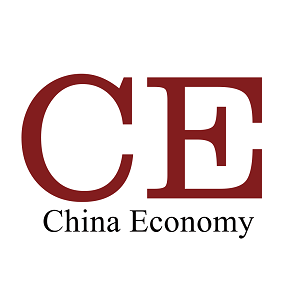
A staff member displays samples of the COVID-19 inactivated vaccine at Sinovac Biotech Ltd., in Beijing, capital of China, March 16, 2020.(Xinhua/Zhang Yuwei)
"The risk is that this type of departure by the U.S. fractures the international efforts and creates tensions and uncertainties and insecurities."
LONDON, May 12 (Xinhua) -- U.S. President Donald Trump administration's approach to the search for a vaccine has seen it exclude the U.S. government from an accelerating global effort against COVID-19, raising concerns that the endeavor could falter without official U.S. support and leadership, British newspaper The Guardian said in a report on its website Tuesday.
Tom McCarthy, the national affairs correspondent for Guardian U.S., wrote in the article that even as research labs based in the United States move candidate vaccines into clinical trials and pharmaceutical companies reorganize U.S. factories to prepare for large-scale production, the U.S. government has "turned its back" on the global coalition fighting the disease.

French Civil Protection volunteers disinfect their equipment in Pantin near Paris, France, April 22, 2020. (Photo by Aurelien Morissard/Xinhua)
Recalling that the United States did not send representation like other major countries and international organizations last week to a virtual global summit that raised more than 8 billion U.S. dollars for the coronavirus vaccine, the Guardian report said Trump "has tapped his son-in-law, Jared Kushner, and others to lead what looks like a unilateral push for a vaccine that the administration has dubbed 'Operation Warp Speed'."
The Guardian cited Stephen Morrison, who runs the global health program at the Center for Strategic and International Studies, as saying that "What the United States has chosen in these recent meetings -- not to attend, and not to participate -- it has chosen instead to begin talking about a sort of go-it-alone approach," he said. "It seems to be taking an 'America First' approach."
"The risk is that this type of departure by the U.S. fractures the international efforts and creates tensions and uncertainties and insecurities," he said.
The Guardian said the coronavirus pandemic presents "a quintessential global challenge" and even a good vaccine might not confer long-term immunity, "meaning that the virus will not be defeated anywhere until it is defeated everywhere."

Medical personnel attend to a patient in Martini Hospital, the country's only medical facility dedicated to treating COVID-19 patients in Mogadishu, capital of Somalia, May 9, 2020. (Xinhua/Hassan Bashi)
However, the report said Trump has attacked key international players in the global effort to search for vaccine, including the World Health Organization (WHO) and China, which has four candidate vaccines in clinical trials, compared with the three advanced by companies with ties to the United States.
Morrison, as quoted by The Guardian, said Trump appeared to be playing to a domestic political audience by sending a message "that we are taking action on our own, we're less reliant on others, that we will deliver faster and more furious, than our competition."
Musing on the history of U.S. leadership on vaccine research, Paul Duprex, director of the Center for Vaccine Research at the University of Pittsburgh, told The Guardian that "we (the United States) have been so instrumental as a country" in the development of vaccines.
"It's weird to have all of that rich history in collaboration in biomedical sciences, and then think, at a moment in time, for reasons that are hard to fathom -- that you want to go it alone, with a global problem, when collaboration is more necessary than ever," he told the newspaper.



